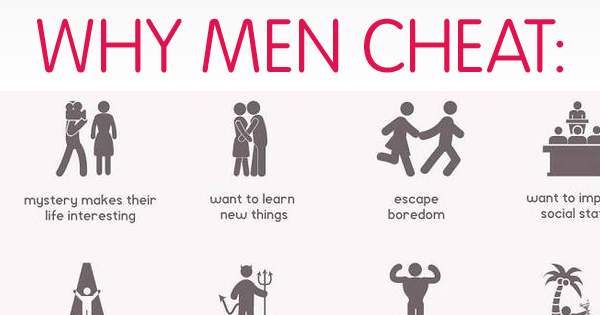Introduction: The Text You Didn’t Expect
Your phone buzzes. You glance down, and suddenly your heart skips a beat—it’s a message from your ex. After months of silence, they’ve reached out.
Now what?
Do you reply instantly? Ignore it? Or take hours agonizing over the “perfect” response?
When an ex resurfaces, emotions collide. Nostalgia mixes with curiosity, and sometimes, old wounds reopen. This is not just about sending a text back—it’s about deciding whether responding serves your peace of mind or reopens a chapter you’ve already closed.
In this guide, we’ll explore how to respond wisely if your ex contacts you after months, covering:
- Why exes reach out after long silence
- How to check your own intentions before replying
- Common mistakes to avoid
- Healthy ways to respond in different scenarios
- When ignoring is the best answer
We’ll keep it relatable, clear, and full of practical insights so you can feel confident, whatever you decide.
Why Do Exes Reach Out After Months?
Understanding the motive behind their message helps you decide whether to engage or walk away.
1. Nostalgia Hits Them
Breakups don’t erase shared history. Familiar memories may resurface, prompting them to check in.
2. Loneliness or Boredom
When people feel lonely, they sometimes return to old connections for comfort. This doesn’t always mean they want reconciliation.
3. Guilt or Closure
Some reach out to apologize or clarify things left unsaid. It can be genuine, or it can be a way to ease their conscience.
4. Curiosity
They may just want to know if you’re okay—or if you’ve moved on.
5. Rekindling Romance
Sometimes, it’s an attempt to test the waters and see if the door is still open.
👉 According to Psychology Today, exes often resurface when they feel regret, need validation, or are struggling with unresolved emotions.
Step One: Check In With Yourself Before Responding
Before crafting a reply, pause. The real question isn’t “What should I say?” but “Why do I want to say it?”
Ask yourself:
- Do I feel neutral, or am I secretly hoping for reconciliation?
- Am I emotionally ready to reopen this door?
- Will responding serve my healing, or set me back?
If you’re still vulnerable, answering might reignite pain. If you feel calm and grounded, you may be ready to respond maturely.
Common Mistakes People Make
When caught off guard, many people react impulsively. Here’s what to avoid:
1. Responding Too Quickly
A hasty reply signals emotional dependence. It’s better to pause and think.
2. Over-Sharing
You don’t need to update them on your entire life. Keep it measured.
3. Acting Out of Spite
Responding with sarcasm or bitterness may feel satisfying but usually backfires.
4. Pretending You Don’t Care (When You Do)
Overcompensating with coldness can hide unresolved feelings.
5. Jumping Back In Immediately
Just because they reached out doesn’t mean reconciliation is right.
How to Decide If You Should Respond
Think of your options as three clear paths:
| Situation | Best Response | Why |
|---|---|---|
| You’re still hurt and healing | No response | Protects your mental health |
| You’re neutral but cautious | Polite, short reply | Keeps boundaries clear |
| You’re genuinely open to reconnecting | Honest, but slow-paced conversation | Prevents rushing back into old patterns |
| They were toxic/abusive | Block or ignore | Protects you from repeating harmful cycles |
| They want closure and you’re ready to give it | Short, kind acknowledgment | Offers peace without over-committing |
This table helps simplify what often feels overwhelming.
Healthy Ways to Respond in Different Scenarios
Your response depends on context and intention. Here’s how to handle common situations.
1. If They Just Say “Hey”
A vague message is often a test. You’re not obligated to answer. If you do, keep it light:
- “Hi, hope you’re well.”
2. If They Apologize
If closure feels right:
- “Thanks for reaching out. I appreciate the apology.”
Keep it brief—don’t reopen old wounds unless you want to.
3. If They Want to Meet
Pause. Ask yourself if meeting aligns with your growth. If not:
- “I’m not comfortable meeting, but I wish you the best.”
4. If You’re Interested in Reconnecting
Be honest and cautious:
- “It’s been a while. If we talk, let’s take it slow and see where we stand.”
When Ignoring Is the Best Answer
Silence is a valid response. You owe your ex nothing, especially if:
- The relationship ended badly.
- They were disrespectful, toxic, or abusive.
- You’re still healing and don’t want setbacks.
Blocking or ignoring isn’t rude—it’s protecting your peace. According to Healthline, no-contact is one of the most effective ways to heal after a breakup.
Tips on Maintaining Boundaries When Your Ex Reaches Out
When your ex suddenly appears in your inbox or messages, the line between curiosity and chaos can blur quickly. Boundaries are your guardrails—they protect your emotional health, prevent backsliding into unhealthy dynamics, and keep your new life intact. Here are practical, realistic ways to enforce them.
1. Decide Your Intention Before Responding
Boundaries start with clarity. If you don’t know what you want, it’s easy to get pulled into conversations that confuse or hurt you.
Ask yourself:
- Am I looking for closure, friendship, or a possible reconnection?
- Or do I just want to see if they still care?
Being honest with yourself prevents mixed signals. For instance, if your goal is healing, but you start chatting daily, you’re crossing your own line.
2. Keep the Conversation Short and Neutral
You don’t need to share everything. Over-sharing makes it easy to slip back into old intimacy.
Examples of neutral responses:
- “Thanks for checking in. I’m doing well.”
- “I appreciate your message, but I’d prefer to keep things simple.”
Avoid diving into personal struggles, deep feelings, or late-night texting marathons. Those are emotional shortcuts back into the past.
3. Don’t Revisit Old Arguments
Your ex may bring up unresolved fights or mistakes, especially if guilt or blame lingers. Engaging in these debates rarely leads to resolution.
Why avoid this trap?
- It reopens old wounds.
- It tempts you to rehash the past instead of focusing on growth.
- It leaves you emotionally drained.
Instead: redirect politely.
- “I don’t think it’s helpful for us to revisit that. I’m focused on moving forward.”
4. Use Clear, Firm Language
Boundaries need to be direct, not vague. Saying “Maybe we can catch up sometime” leaves room for pressure. Instead, be specific.
Examples of firm boundary-setting:
- “I don’t think it’s good for us to meet right now.”
- “I’d prefer to keep communication limited.”
- “Please respect my space if I don’t respond immediately.”
Clear language communicates strength and reduces misunderstanding.
5. Avoid Over-Explaining Yourself
You don’t need to justify every boundary. Long explanations often invite debate.
- ❌ “I can’t talk because I’m busy, and also my work schedule is tight, and I’ve been dealing with stress…”
- ✅ “I don’t think it’s good for us to talk right now.”
Short, respectful statements close the door firmly without sounding cruel.
6. Protect Your Digital Space
In today’s world, boundaries aren’t just emotional—they’re digital too.
Practical digital boundaries:
- Mute or block them on social media if their posts trigger emotions.
- Avoid stalking their profiles—digital curiosity often reignites old feelings.
- If needed, restrict them from messaging you directly.
Maintaining control of your online environment helps your mental peace.
7. Balance Kindness With Self-Respect
Boundaries don’t mean hostility. You can be polite while still firm. Responding with kindness shows maturity, but it should never come at the cost of self-respect.
Example:
- “I hope you’re doing well. I don’t think staying in touch works for me, but I wish you the best.”
This closes the door kindly without leaving cracks for further pushback.
8. Limit Frequency of Replies
If you choose to engage, avoid falling into old daily communication patterns. Even harmless check-ins can rebuild emotional dependency.
Boundary tip: Decide in advance how often you’ll respond—once a week, once a month, or not at all. Then stick to it.
9. Prioritize Your Current Life
Your boundaries should protect your present, not preserve the past. If responding to your ex threatens your progress in:
- Healing
- New relationships
- Career focus
- Mental well-being
…then the healthiest boundary might be no response at all.
10. Have a Script Ready
Sometimes, in the heat of the moment, you freeze. A pre-written script helps you stay consistent with your boundaries.
Sample scripts:
- “I’m glad you reached out. I’m focused on my own life now and don’t think staying in touch is best.”
- “I appreciate the message, but I’m not open to reconnecting.”
Scripts reduce pressure and prevent emotional replies that you’ll regret.
Quick Recap Table: Boundary Mistakes vs. Healthy Actions
| Mistake | Better Boundary |
|---|---|
| Replying instantly out of habit | Pause, breathe, decide your intention first |
| Over-sharing about your life | Keep replies short, neutral, and measured |
| Revisiting old fights | Redirect: focus on present and future |
| Giving vague answers | Use clear, direct statements |
| Over-explaining your decisions | Respectfully decline without long justifications |
| Stalking their social media | Mute, block, or unfollow for digital peace |
| Responding daily out of routine | Limit frequency or go no-contact |
The Takeaway
Boundaries are not walls to keep people out—they’re doors that you choose when to open or close. When your ex reaches out after months, boundaries help you protect your healing, prevent emotional backsliding, and keep your power intact.
Respect yourself enough to set them, and strong enough to enforce them.
The Emotional Aftermath: How You’ll Feel After Replying
Responding to an ex often triggers emotions—even if the conversation is short. You may feel:
- Relieved, if you got closure.
- Confused, if their motives were unclear.
- Sad, if memories resurface.
- Empowered, if you held firm boundaries.
Whatever you feel is valid. Give yourself space to process.
Final Thoughts: Choose Peace Over Impulse
When your ex reaches out after months, it’s tempting to respond from habit, longing, or curiosity. But every reply—or lack of reply—is a choice that shapes your healing.
The healthiest response is the one that protects your peace, honors your growth, and aligns with the future you want. Sometimes that means opening the door a crack. Other times, it means locking it for good.
Remember: your healing is more important than their text.





